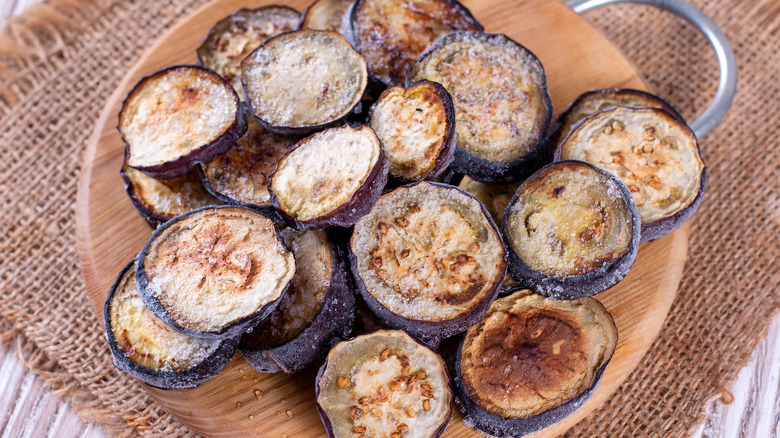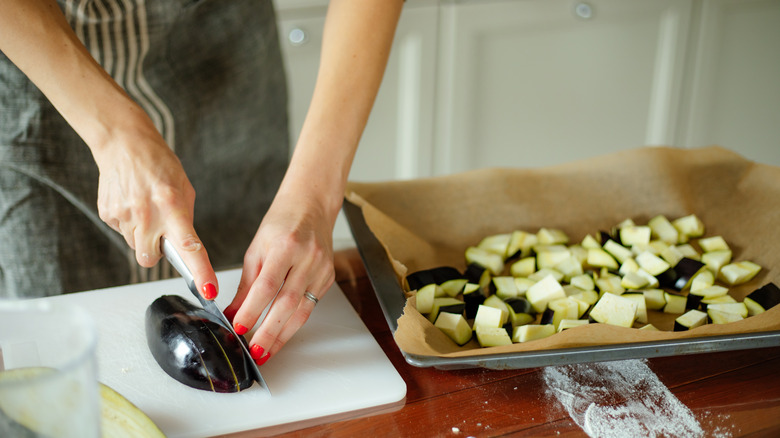Why It's Best To Cook Eggplant Before You Freeze It
Any foodie or conscious consumer trying to reduce their waste knows the acute pain of having to toss food simply because it turned slimy or moldy in the produce drawer before you could use it. We've all been guilty of letting countless bags of spinach, containers of tomatoes, or cartons of mushrooms die a wilt-y death on our watch. One such food you can easily save from this fate is eggplant.
The jewel-toned produce probably isn't something you thought of as a likely contender for the freezer — after all, you don't routinely see it sold that way — but when done right, frozen containers or bags of eggplant will keep beautifully until you're ready to use. Like other veggies (though technically, eggplant is a fruit and type of berry!) with high moisture contents, if proper steps aren't taken, freezing eggplant can result in an unappealing mushy texture, since the high water content alters the structure of the fruit's flesh as it freezes and thaws.
If you notice those gorgeous rich purple skins turning shriveled and know they're soon headed to the compost bin, the trick is to cook the nightshade before freezing. If you've tried and failed at freezing eggplant before, skipping this step was almost certainly to blame. Roasting, baking, or sauteing the eggplant before freezing preserves its fresh taste and flavor, minimizes the changes to its texture, and ensures you'll always have it on hand for your eggplant stir fry dishes, spaghetti sauces, and curries.
Avoid mushy, unappealing eggplant by cooking before freezing
When done right, there's nothing as delicious as crispy, fried eggplant parmesan or a perfectly roasted eggplant enjoyed in an Indian dish like baingan bharta. But the fruit is a delicate one, and if mushy, flavorless, or chewy eggplant haunts you, you're not alone.
Before cooking fresh eggplant, generously salting to draw out excess moisture is a game-changer. When it's freezer-bound, this high water content will also be an issue unless it's cooked first, even with just a quick blanche. When preparing to freeze, consider how your future self will use the eggplant. If you'll be adding it to a stew or dip, roasting the whole eggplant then pureeing the flesh and freezing it in a bag is your best bet. If you'll be adding cubes or slices to a stir fry, sandwich, or casserole, cook the eggplant in the oven or on the stovetop and freeze the pieces (no need to peel the fruit, unless you prefer). When you're about ready to use it, let the frozen fruit thaw out in the fridge overnight.
For frozen eggplant that tastes as close to fresh as possible, bonus points if you can stock up at the farmer's market when they're at their best, which is late summer to early fall in most areas. When pre-cooked, any variety of pureed or cubed frozen eggplant will keep for up to 12 months, so you can enjoy peak flavors and just-picked nutritional benefits all year round.

